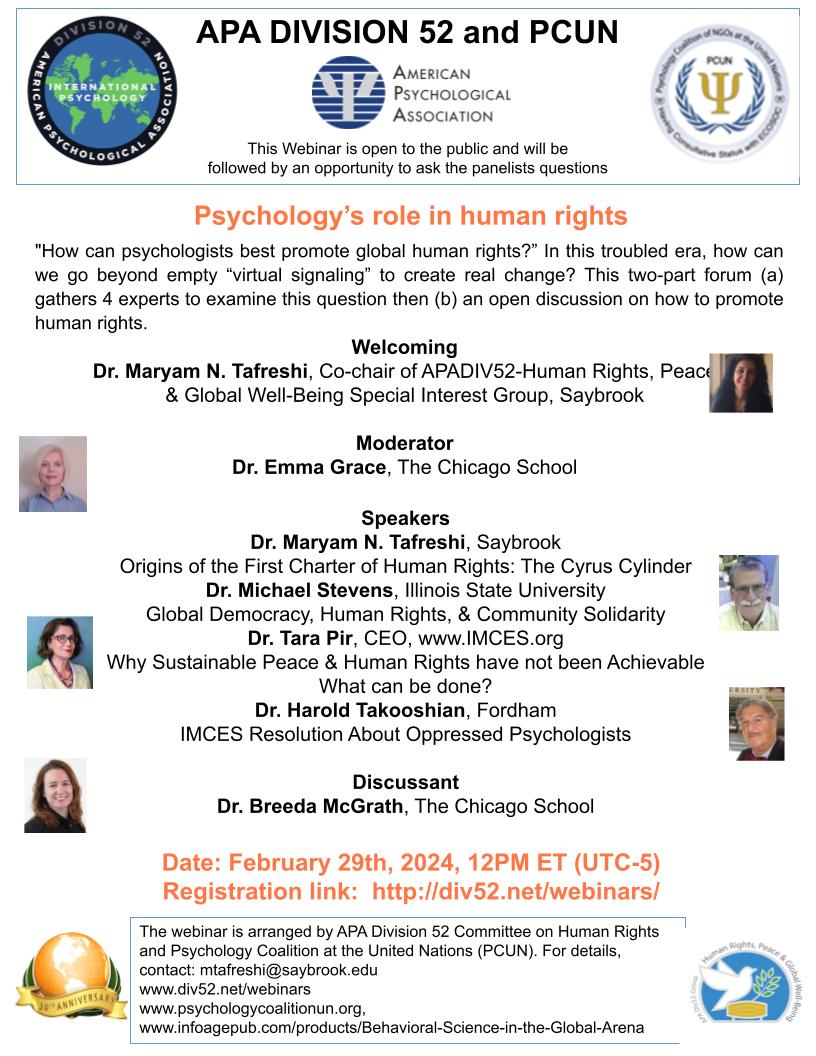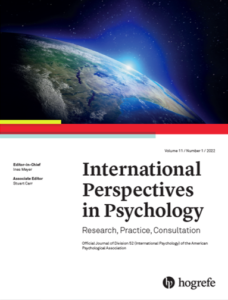
Winter 2024 – Volume 28, Issue 1
Table of Contents
Message from the President
Division News
- Division 52 Midwinter Board Meeting
- Division 52 Council Rep Report
Global Perspectives and Collaborations
- Crowdsourcing Cross-Cultural Research: A Call for Contributors
Member Activities
- Recent Member Publications
United Nations Activities
- Psychology Courses about the United Nations
Early Career Professional Corner
- COP 28 and Transitions in Leadership
Student News
Committee Highlights
- Scientific Committee for Cross-Cultural Research
- International Environmental Justice Committee
Webinars
International Perspectives in Psychology
Announcements and Opportunities
- Join the Global Network of Psychologists for Human Rights
- Call for Translators: APA Division of International Psychology
- 2024 International Psychology Conference
Note from the Editor
- Transitions

Message from our President
Pina Marsico, PhD
Dear Division 52 members,
Here, I would like to establish a dedicated space from which to contact you and share information about new initiatives.
Taking over the role of President from Antony Puente is no easy task, in terms of both content and leadership style. Yet I do feel I was very fortunate to complete my apprenticeship as president-elect with three experienced predecessors, Larry Gerstein, Kurt Geisinger and Antonio Puente, to whom I express my gratitude. Now it is my turn and it will certainly be an opportunity to walk over the “puente” that Tony has built over the last year, and to imagine future developments. In our academic and professional lives, we not only need to build new bridges, but also the courage to cross them. Division 52 is at a crossroads. It may continue to do an efficient job, like the other divisions, or, in the face of global challenges, it may become the cornerstone of APA and position itself in a role of incisive leadership.
During my presidency, there will be new initiatives that will bring the world to APA and APA to the world, with particular attention on the Global South. Two of those initiatives have already begun. The first is the Interdivisional Grant we have established in partnership with Division 17 – Counseling Psychology. The aim is to organize a series of topically oriented webinars promoting South<>to<>North vector conversations. The webinars will host speakers from countries from the Southern Hemisphere to discuss the innovative and community-based solutions that have been established locally in order to address psychological suffering and global challenges.
The second refers to the upcoming APA Convention in Seattle in August 2024. This year, for the first time in the history of the entire APA, our division will accept proposals in English or Spanish. We are challenging conventions and making history!
I do hope we will be brave enough to imagine new challenges over the year ahead.
Wishing you and the whole Division 52 community a bright start to 2024.
Here’s to continued growth, collaboration, and success!
Pina Marsico, Ph.D.
President APA-Division 52, International Psychology

Message from our Past President
Antonio E. Puente, PhD
Society for a Global Psychology
Are we a society for a global psychology or are we a division of the American Psychological Association that represents “international psychology”?
History is the best predictor of future trajectory. So, let us examine what we did in 2023.
- The Council of Representatives caucus representing a more global psychology has grown in membership and impact. And such a focus has become more central to the Councils activities.
- The Asuncion Accord was signed between our division and the Sociedad Interamericano de Psicologia (SIP) in Asuncion, Paraguay at SIP’s biannual summer meeting.
- The division, APA, and many of us have been active supporting the work of psychologists in the Ukraine in multiple ways.
- Our social media presence, especially the webinars, have been a resounding success bring us to the world and the world to us.
- The 2024 APA convention was stellar in many ways but most importantly allowing a stronger connection between us and those that cannot attend conventions.
- We have re-activated the Council of Past Presidents with the hopes that their collective wisdom will bring greater clarity to our vision and mission.
- The Handbook as well as the By Laws have received a thorough analysis helping to reshape the importance of students and Early Career Psychologists as well as how do we business.
The future of our division goes beyond who we have been but it is certainly shaped by what we have done. It is time that we move from the historical and colonialist perspective that we are the international arm of APA and instead we become a global voice of psychology for all and by all.
Division 52 Midwinter Board Meeting The Division 52 Midwinter Board Meeting will be held February 21 – 22, 2-24 on the Chicago School’s Washington DC campus. The board is excited to announce that we will have the opportunity to meet with APA officers and representatives of Colombian and Brazilian Associations of Psychology as part of our board meeting activities. We are also looking forward to welcoming our newly elected board members for 2024! We are grateful for the professional service of our members!
The Division 52 Midwinter Board Meeting will be held February 21 – 22, 2-24 on the Chicago School’s Washington DC campus. The board is excited to announce that we will have the opportunity to meet with APA officers and representatives of Colombian and Brazilian Associations of Psychology as part of our board meeting activities. We are also looking forward to welcoming our newly elected board members for 2024! We are grateful for the professional service of our members!
Division 52 Council Rep Report
Merry Bullock, Ph.D., Division 52 Representative to APA Council of Representatives
APA Council Meets in February

The APA Council will be meeting in a hybrid meeting in Washington D.C. this February. The agenda is not yet posted, but it is certain that council will be considering APA’s strategic plan. This is a new strategic plan to update the one passed in 2019. Last year, Arthur Evans described the goals of the Strategic Plan update here https://www.apa.org/about/apa/strategic-plan/updating-strategic-vision.
Councill has not yet received the latest version of the updated plan – but we should in the next month, as we will be asked to vote on it. As soon as it is circulated, I will forward it to the Division membership for your comments and suggstions that I can take to the council discussion as your representative.
Another activity at the February council meeting will be activities of the Caucus on Promoting Global and Global Human Rights. Past president Tony Puente, past D52 secretary Michele Ribeiro, and I have been actively involved with forming and leading this division from the start. I am currently co-chair, along with Ali Merchant (Division 39). Other officers are Lisa Ferdinand (Div. 17), Michele Ribeiro (Div. 49), and Bradley Olsen (Division 26, who replaced Lu Steinberg, Div. 39). The Caucus is planning a Town Hall Meeting January 26 in advance of the council meeting. We are also working on a draft council resolution: APA Responses to Global Armed Conflict. The goals of this resolution are to: (1) raise awareness of the psychological issues in armed conflict; (2) Provide guidance on how APA might respond to instances of global armed conflict; and (3) Provide guidance on how psychology and psychologists might response to instances of global armed conflict both internationally and domestically. The Caucus is searching for experts on armed conflict to assist with writing the preamble and literature review of this resolution – please contact me (merrybullock@mac.com) if that sounds like you!
Beyond serving on council there are numerous ways that Division 52 members can help spread the word about international and global issues, and can help provide a model and catalyst to APA to think globally. APA has a large number of Boards and Committees help structure and implement much of its association work and bringing a global perspective to each of these is crucial Why not take action? The CALL FOR NOMINATIONS to APA Boards and Committees is open until February 15 – NOMINATE YOURELF, NOMINATE A COLLEAGUE – see the form here: https://www.apa.org/about/governance/elections/call-for-nominations?utm_source=apa&utm_medium=dec-jan-web&utm_campaign=boards-noms-2023&utm_id=boards-noms-2023
If you do self nominate please let me know – Divisions are also asked for recommendations!
Together, we can try to infuse APA with D52 spirit and values – an create a truly learning environment.
Merry Bullock, PhD
Division 52 Representative to the APA Council
Crowdsourcing Cross-Cultural Research: A Call for Contributors
Brianna Fitapelli, Antonios Kagialis, Kimberly Kamper-DeMarco, Jill Norvilitis, & John Edlund
The Network for International Collaborative Exchange (NICE), launched in the winter of 2018, is a program based on facilitating cross-cultural research among Psi Chi members and non-members both within the United States, and internationally. NICE has two objectives: 1) to connect and maintain a network of research collaborators and 2) to implement a crowdsourcing initiative (CROWD) that seeks to gather researchers from around the globe to answer a specified research question in which a contributor-submitted research proposal is selected and promoted by Psi Chi to generate collaboratively collected data from locations across the world using the same research protocol. The benefits of considering the NICE CROWD program as your next academic/research endeavor are vast and our NICE chair and committee members are committed to mentoring collaborators throughout the process. Our program maximizes efficiency and cost-effectiveness, saving researchers the funds often needed for advertising, recruitment, and assessments. Further, by becoming a NICE collaborator, you can join our network of professionals across the world, receive access to large, diverse data sets, and become an author on this year’s NICE project!
This year’s project focuses on the relationship between culture and perceptions of victimization by teachers. It has been well-established that peer victimization and bullying are linked with a host of negative outcomes. However, little work has examined what happens when students feel like they are being bullied by their teacher instead of a fellow student. Victimization by teachers has been identified cross-culturally and has been recognized as problematic across many cultures, and yet, prevalence rates and differences in the cultural experience of this form of victimization have yet to be explored. The current study will allow college student participants to retrospectively report on their experiences with teacher victimization during primary and secondary school (kindergarten through the last year of secondary education or high school) to examine both prevalence rates and consequences of this form of victimization. Cultural dimensions such as tightness/looseness, power distance, individualism/collectivism as well as socioeconomic status will be examined as key variables to better understand how culture may play into associations between teacher victimization and related consequences.
Psi Chi chapters, members, and nonmembers in the United States and internationally are welcome to join this important project now through March 15, 2024. Once data collection is completed in June 2024, presentation and publication authorship opportunities will be available. Benefits of collaborating include a reduced burden of having to solicit a large number of participants, increased diversity of study samples, accessible materials and protocols for researchers, and a convenient platform for faculty to engage students in the scientific research process. Contributors to this project are asked to commit to preparing the IRB protocol for approval on their campus, collecting 100–250 responses from college students, and, if necessary, translating or securing translations of the measures (currently in English). To get started, email NICE Chair Brianna Fitapelli at: nicechair@psichi.org.
Recent Member Publications
Grant Rich and Kelly O’Donnell (2023). Global Mental Health. In Oxford Bibliographies in Psychology. Ed. Dana S. Dunn. New York: Oxford University Press. Note–The pre-copyedited version of this article is available on the GMH-Map website. “This module features resources representing key GMH developments and directions, organized into 11 sections. Due to GMH’s overlapping and broad range of topics, many more sections could also include: history, climate/environment, corruption, universal health coverage, multidimensional poverty, trauma, implementation science, social determinants of health, mental health and psychosocial support, substance use and addictions, national and regional overviews, etc. Note that many of these topics are addressed in the chapters of the edited books included in the References and Texts section.”
Drs. Merry Bullock and Claudia Zuniga completed a special issue on Internationalization in Psychology for Trends in Psychology. Their editor’s introduction is titled: “Internationalization of Psychology: Indicators, Challenges, Benefits and Risks. You can see the special issue here: https://link.springer.com/journal/43076/volumes-and-issues/31-3 – it is open access
Bullock, M. & Zuniga, C. (2023). Internationalization of Psychology: Indicators, Challenges, Benefits and Risks. Trends in Psychology, 31(1), 447-452. https://doi.org/10.1007/s43076-023-00319-2
Cameron, E. C., Toussaint, L., Balfour Adjei, S., Crawford, J. N. Mounet, O., Trend-Cunningham, & Jacquin, K.M. (2023). Finding meaning in crisis: Gender, traumasymptomology, and spiritual practice impact posttraumatic growth in COVID-19 Ghana. Journal of Research in Psychology, (2), 1. 1-28, https://jrplcwu.pk/index.php/JRP/article/view/14
Psychology Courses About the United Nations
Alireza Zareian Jahomi & Harold Takooshian *
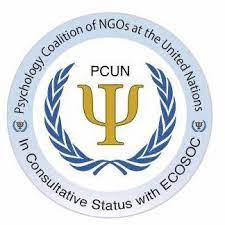
How many college-level courses focus on the role of psychological science at the United Nations? On April 21, 2023, Division 52 hosted a webinar with several pioneering psychology faculty who have developed new courses on international psychology (Takooshian, Twose, & Tateo, 2023). In recent years, at least a few pioneering faculty have also independently developed a course on psychology at the United Nations and its 17 Sustainable Development Goals (Al-Bayati, 2018). These innovative courses are often celebrated by their universities, to give their students a valuable UN experience. We are now doing a survey of the contents of these diverse courses about the UN. So far, we have identified five UN courses, undergraduate and graduate, developed by experienced faculty, all in the New York region.
-1. Pace University (Florence L. Demark, Richard Velayo)
-2. Columbia University (Judy Kuriansky)
-3. State University of New York-Binghamton (Dinesh Sharma)
-4. Fordham University (Parviz Morewedge, Hamid Al-Bayati, Dinesh Sharma)
-5. Fairleigh Dickinson University (Hamid Al-Bayati)
In 2020, the Psychology Coalition at the UN (PCUN) launched a new series of textbooks to support these new courses (Takooshian & Congress, 2022). In fall of 2023, an inquiry through the Division 52 listserv identified four faculty who would like to develop a new UN course or mini-course at their school.
Invitation. Readers are invited to contact us soon if they know of any other existing course or mini-course on the UN, or are interested to develop such a course. We hope to release a report with PCUN early in 2024, to facilitate new UN courses. For any details, please contact us soon at azareianjahromi@fordham.edu
References
Al-Bayati, H. (2018, spring). Teaching undergraduates about the United Nations. International Psychology Bulletin, 22 (2), 53-54.
Takooshian, H., & Congress, E.P. (2023, Winter). Three new international textbooks for U.S. psychology courses. International Psychology Bulletin, 27 (1), 35-37.
Takooshian, H., Twose, G., & Tateo, L. (2023, summer). Division 52 webinar examined internationalizing psychology courses. International Psychology Bulletin, 27 (2), 22-23.
* Note: Alireza Zareian Jahomi is a doctoral student in applied developmental psychology at Fordham University, and an ICP intern at the UN. Harold Takooshian is the treasurer of the PCUN, and IMCES representative to the UN.
Greetings from your Division 52 ECPs! In this submission, we would like to highlight recent events at COP 28 and what this means for globally-focused ECPs. We will also touch on transitions in our leadership for the new year, and ideas for 2024.
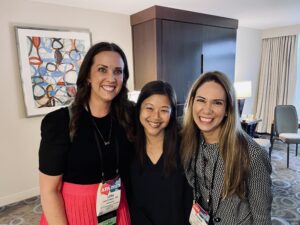
Coping with climate stresses and shocks impacts our mental health and wellbeing. It is critical for ECPs to gain solid knowledge and understanding of the latest discussions linking mental health and climate change. This year, and for the first time at COP 28, the evidence, impacts, and opportunities of mental health and climate change were addressed. Several sessions and negotiations highlighted the current response of affected communities to climate threats, and flagged the need to integrate and invest in promoting mental health and psychological wellbeing and resilience. For more information, check out some key resources:
- COP 28 Interactive Guide
- Health@COP 28
- The Lancet Countdown on Climate and Health
- COP 28 UAE Declaration on Climate and Health
There is no shortage of concern here for ECPs. Climate issues impact every area of life and wellbeing. For instance, Division 52 leaders Dr. Breeda McGrath and Dr. Lora Erickson (2022), wrote on the impact of social dislocation facing climate migrants and refugees. These individuals face a host of increased risks, however, there are also protective factors and opportunities for resiliency development to be mindful of (e.g., collective action, sustainable redevelopment, etc.). You can read the full piece, open access, here.
Transitions in Leadership
Dr. Lora Erickson will be transitioning out of ECP chair roles, having fulfilled her three-year term. Dr. Erickson has been an active member of Division 52 since 2016, and she looks forward to continuing her APA involvement moving forward, particularly in Division 2. Dr. Tatyana El-Kour will complete her chairmanship by the end of 2023. She will continue to support the ECP committee as the immediate past chair. Dr. Rawan Atari-Khan will begin her role as ECP chair in 2024. We welcome our new ECP Chair-Elect, Dr. Erinn Cameron in 2024!
2024 Plans
Sign up for our monthly webinars using the link https://div52.net/webinars/. On January 18, 2024, Dr. Donald Moss will spoke about “Wellbeing in Times of Global Chaos.”
We hope to see everyone in Seattle for the APA 2024 Convention. Stay tuned for new regarding EPC-focused events during the convention.
Dr. Rawan Atari-Khan, ECP Chair 2024, rawan.atari-khan@marquette.edu
Dr. Erinn C. Cameron, ECP Chair Elect, erinncameronphd@gmail.com
Dr. Tatyana El-Kour, ECP Past Chair, tatyana.elkour@gmail.com



As we embark on a new year filled with possibilities and opportunities, it brings me great joy to assume the role of the Student Chair of Division 52. I have been a member of the division for several years and have enjoyed working with all of you. I am excited to see where we go this year. I would like to take this chance to tell you a little bit about me and my goals for next year. First, a little about me. I am a 4th year Clinical Psychology Doctoral Candidate at Fairleigh Dickinson University. I was born in Bangalore, India, and lived there between the ages of 9 to 18. I currently work as an extern at the Center for Traumatic Stress Recovery and Resilience at Zucker Hillside Hospital in New York. I have a deep commitment to global mental health, have worked with the international rescue committee, and my research is focused on cultural variations in risk factors for suicide.
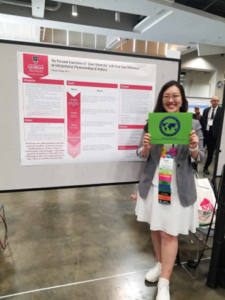
I would like to thank last year’s past chair Erinn Cameron, and last year’s chair Aldo Barrita, for being amazing mentors and paving the way for students in the division. Last year we achieved several milestones in providing students with a louder voice within the division. We had several student achievements such as successful APA student programing, award winners, and the creation of new organizations dedicated to involving students in the trajectory of the field of global psychology. I want to thank the student members for their contributions to create a more engaged and vibrant community within our division. Your commitment to mental health and global psychology is truly commendable, and I believe that by coming together, we can achieve even greater heights. I also want to introduce Olivia Mounet, as our Student-Chair Elect. She is going to be an excellent asset to the Division 52 team, and I hope you join me in giving her a warm welcome. With this year’s elections around the corner, I would like to bring your attention to a change in the Student-Chair position. The Division 52 Board has voted to change the Student-Chair position to a two-year commitment as students tend to graduate during the third year of their term. We hope that means a better and more dedicated commitment to student affairs.
I hope to encourage more student engagement in the division this year. Currently, we have dedicated students contributing to various committees such as the Handbook Committee, the Webinar Committee, and the Women’s Committee. Their efforts are invaluable, and I extend my gratitude to each of them. However, our strength lies in our unity, and I encourage more students to join Division 52 committees. Your unique perspectives and skills will undoubtedly enrich our initiatives. In an effort to create more spaces for students to connect, share ideas, and forge lasting bonds. Please look our for information on the Division 52 student listserv about upcoming student meetings. My commitment is to transform our division into a welcoming and open space for students to interact, learn, and form global connections. I invite each of you to reach out if you have any questions, suggestions, or if you wish to play a more active role in our division. Your involvement is pivotal to the success of our collective mission.
Let us seize the opportunities that this new year brings, working hand in hand to make a positive impact on global psychology. Together, we can create a community that thrives on collaboration, support, and a shared passion for mental health.
Thank you for your dedication, and I look forward to an inspiring year ahead.
Neha Srinivas, Division 52 Student Chair 2024
nehasrinivas16@gmail.com
Olivia Mounet, Division 52 Student Chair Elect
omounet@fielding.edu


Scientific Committee for Cross-Cultural Research: Mission Statement
The APA Division 52 Scientific Committee for Cross-Cultural Research is a collective, inclusive body of individuals dedicated to advancing and promoting high-quality andinclusive research with indigenous, cross-national, and cross-cultural samples. We do this by (1) identifying and sharing resources with APA Division 52 members and others conducting research with indigenous, cross-national, and cross-cultural samples, and (2) promoting high-quality and inclusive research.
Resources relevant to our mission include:
- publications on theory, methods, and data analysis
- funding opportunities and awards
- opportunities to receive training to augment theory building and research skills,
- with special emphasis on psychologists in majority countries
- opportunities to collaborate in cross-cultural research projects
- related international organizations
- ways in which we promote high-quality and inclusive research conducted with
- indigenous, cross-national, and cross-cultural samples include:
- emphasizing multi-dimensional and multi-method research
- promoting research that uses open science principles
- encourage the use of culturally adapted measures, tools, and norms
- heightening awareness of such research
- disseminating this high-quality research
Stay tuned for resources in the upcoming Spring issue.
Wendy Kliewer, Ph.D., Chair, Division 52 Scientific Committee for Cross-Cultural Research
 wkliewer@vcu.edu
wkliewer@vcu.edu

International Environmental Justice Committee:
Statement on the outcomes of the Dubai Climate Change Conference COP28
Collectively written by the IEJC Committee Members
In the aftermath of the COP28 conference, held in Dubai (UAE) between 30 November and 12 December 2023, the members of the International Environmental Justice Committee of APA DIV-52 felt the need to produce a reflection regarding the first official statements and outcomes and their implications for international psychology. The conference’s main claims and commitments of the partner countries, expressed in the so-called “global stocktake,” have been received with controversial attitudes as expressed in both the political and media commentaries.
In particular, the media coverage focused on the controversial issue concerning fossil fuels. Indeed, the conference was hosted by one of the major global actors in the production and marketing of fossil fuels. The “Decision -/CMA.5, Outcome of the first global stocktake” final text (all documents are available at https://unfccc.int/cop28/outcomes) provides a list of “calls on” participating countries to “Transitioning away from fossil fuels in energy systems, in a just, orderly and equitable manner, accelerating action in this critical decade, to achieve net zero by 2050 in keeping with the science” and “Phasing out inefficient fossil fuel subsidies that do not address energy poverty or just transitions, as soon as possible” (p. 5). On the one hand, this compromise has been saluted as a success, for it is the first time that fossil fuels are explicitly listed among the products to be eliminated. On the other hand, criticisms address the lack of a stronger formulation, calling on the rapid “transitioning away” from them.
Besides the controversy that caught media attention, we think that the document contains several relevant aspects for international psychology and environmental justice. Although COP28 is mainly concerned with climate change and global warming and it is largely based on the outcomes of the 6th ICCP, the conclusions recall the relationships with human rights, health, sustainable environment, the rights of Indigenous Peoples and local communities, the rights of migrants, children, persons with disabilities and people in vulnerable situations; gender equality; and intergenerational equity. Besides the link to the SGDs, the issues of climate justice, non-market large scale alternatives, and governmental policies represent a counterpoint to the neoliberal framework that is majoritarian among the partner countries. Indeed, the current framework insists that “finance, capacity-building, and technology transfer are critical enablers of climate action” (p. 2) and advocates “the nationally determined nature of nationally determined contributions” (p. 6). Both the neo-positivistic and national sovereignty perspectives are consistent with the current political trend in the neoliberal economies and stress the idea that to solve the environmental crisis, and each country can only do it by itself if it possesses enough money and technology. “Internationalism” and “multilateralism” (p. 20) are the terms used to describe the type of cooperation envisaged. The COP28 conclusions also acknowledge the IPCC warning that the objectives of reducing emissions and keeping global warming within the margins of 1,5 degrees Celsius have been clearly missed.
The global strategy to cope with climate change is based on three pillars: mitigation, adaptation, and financial and technological support. In other words, countries shall act to reduce emissions, change their energetic models, and make the change sustainable and economically profitable. Moreover, there should be a fair system of reparation for the damage and losses that some communities will (inevitably?) suffer from climate change and the long-term strategy adopted.
Reading the “global stocktake” from a countertransference perspective, the signaling effect emerging is a certain degree of ambivalence, discomfort, and slightly helpless indignation. Where do those mixed yet negative feelings come from? How can they help to reflect upon the position and role of international psychology in the phenomenon?
We think that the ambivalent effect is caused by the presence of a clear denunciation of the failure of the current approach and the reaffirmation of the very same framework that caused the failure. National political responsibility and capitalistic economic models are considered the only possible forms of organization. All solutions must follow from “nationally determined contributions” (p. 21). The sense of urgency that is constantly stressed by IPCC reports – and apparently acknowledged by the conference – is always counterbalanced by the containment of any effort of more radical change. Thus, the question is: can humankind’s well-being, climate justice, environmental sustainability, and human rights be achieved and maintained in the long term within the existing postmodern framework?
A similar issue concerns psychology theory and practice. Psychological sciences are developing within a neo-positivistic and neoliberal framework, in which mental health in relation to the environmental crisis is pursued through interventions of mitigation of the mental suffering and adaptation to the expected changing conditions, achieved through guided individual behavioral change rather than through a radical criticism to the existing socio-cultural-economic state-of-affairs. It seems that social critique is not a task of psychology. However, international psychology is in the best position to question epistemological and practical categories that are naturalized, such as “national identity,” “individual behavior,” and “universalism.” The environmental crisis is something that does not fit within national boundaries or the individual psyche. It cannot be understood or responded to by appealing to the post-modern and Western understanding of identity, will, and freedom. It is not a coincidence if the stronger, radical, and effective critiques of the current way hegemonic neoliberal societies act in the ecosystemic network of relationships come from Indigenous communities with radically different models (Danowski & De Castro, 2016).
Our invitation is thus to Division 52 members to begin an intense debate about the extent to which international psychology can rethink the meaning of “international” in psychological sciences in light of the ecosystemic challenges to humankind’s survival (Chakrabarty, 2021).
International Perspectives in Psychology: Research, Practice and Consultation
Ines Meyer, School of Management Studies, University of Cape Town, South Africa
Mendiola (Joy)Teng-Calleja, Ateneo de Manila University, Quezon City, Philippines
Current Issue:
Volume 12, Issue 4: 2023 https://econtent.hogrefe.com/toc/ipp/current
* The opinions, information, opportunities, and materials expressed in this member-dedicated section are not necessarily supported by Division 52. Publication in this section does not constitute agreement or support from the Division.
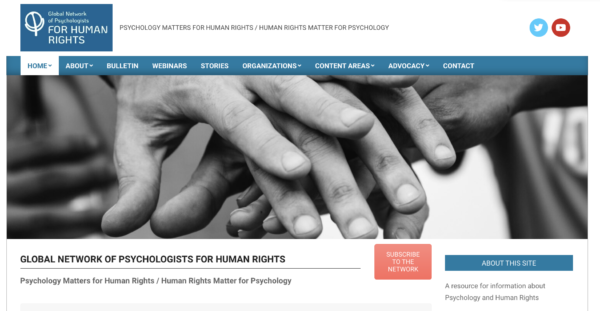 Invitation to join the Global Network of Psychologists for Human Rights
Invitation to join the Global Network of Psychologists for Human Rights
This network is for all those who are interested in the intersection of psychology and human rights – the role of psychology in human rights discussions, and the role of human rights in psychology discussions.
“Joining” the network entails subscribing. Subscribers receive a monthly Bulletin with information about human rights issues and challenges in a range of content areas, listings of relevant publications, and event announcements, as well as announcements about GNPHR webinars and focus groups. Joining is easy – just click HERE.
Call for Translators: APA Division of International Psychology
Maria Elisa Vannoni & Harold Takooshian
“What is the history of APA Division 52, International Psychology?”
Formed in 1997, Division 52 marked its 25th anniversary in 2022. This two-part article shares good news, and a special invitation to psychologists outside North America to actively participate in Division 52.
Beyond-English. The Division 52 website now offers a concise one-page history of Division 52 in over 30 languages.[1] Each of these has the name of the indigenous author who kindly translated this history, to make this accessible to people in their region, from Amharic to Urdu.[2] Since our call for translators appeared in the spring, 2023, issue of the International Psychology Bulletin, experts kindly agreed to translate this history:
Catalan (Sarah Camara)
Esperanto (Humphrey Tonkin, University of Hartford)
Georgian (Lizi Lomtadze, Fordham University)
Hausa (Fatima Yusuf Tumsu, ATBU Bauchi)
Portuguese (Marília Mallmann Parreira, Dall’Agnol, Brasil)
Punjabi (Jaspal Singh, Punjab School Education Board)
Tagalog (Richard S. Velayo, Pace University)
Invitation. Can you translate this page into another language, listing yourself as its author/translator? If so, Maria Vannoni offers a list of 39 new languages (from Afrikaans to Zulu), including the estimated millions of people who use that language.[3] She now seeks psychology colleagues and students who can volunteer to prepare a one-page translation, in 3 steps: (1) Contact Vannoni to pick a new language, and receive the current English-language original. (2) Upon approval, translate and submit your page within 4 weeks, in PDF and MSWord format, naming yourself as its translator/ author. (3) Once this is posted, feel free to post or circulate this widely among compatriots.
For any details, or to volunteer, contact Maria Vannoni soon: me.vannoni@gmail.com
Note: Maria Elisa Vannoni is a multinational psychologist from Italy and Venezuela who currently studies at Fordham University in New York City. Harold Takooshian is a co-founder and past-President of Division 52.
[1] Webpage: https://div52.net/about/history-of-division-52/a-brief-history-of-division-52-english-and-translations/
[2] Current 40 languages: Amharic, Arabic, Armenian, Bengali, Catalan, Chinese-Mandarin, Chinese-Traditional, Dutch, English, Esperanto, Estonian, Farsi, Finnish, French, Georgian, German, Greek, Hausa, Hebrew, Hindi, Hungarian, Indonesian, Italian, Japanese, Kinyarwanda (Rwanda), Korean, Latvian, Malaysian, Maltese, Norwegian, Polish, Portuguese, Russian, Sinhalese, Somali, Spanish, Tagalog, Thai, Ukrainian, Urdu.
[3] 39 future languages: Afrikaans (7 million), Albanian (16), Basque (1), Belarusan (3), Bosnian (3), Bulgarian (8), Cambodian (14), Croatian (5), Czech (10), Danish (16), Galician (2), Gujarati (46), Haitian Creole (7), Hawaiian (.02), Icelandic (0.3), Irish (0.1), Javanese (84), Kannada (37), Khmer (14), Lao (3), Lithuanian (3), Macedonian (2), Marathi (72), Mongolian (6), Nepali (16), Punjabi (63), Romanian (23), Serbian (15), Slovak (5), Swahili (150), Swedish (9), Tamil (69), Telugu (74), Tibetan (8), Turkish (71), Vietnamese (68), Welsh (0.7), Yiddish (1), Zulu (12)
Conferences and Workshops
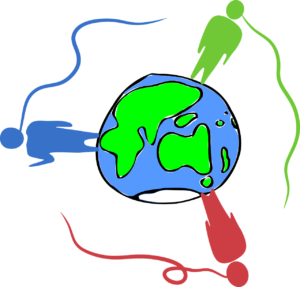
Humanistic and Transpersonal Conference, March 28-30, 2024, Costa Mesa, CA, USA, https://atpweb.org/2024Conference/default.aspx
International Society of Political Psychology, July 4-7, 2024, Santiago, Chile https://ispp.org/meetings/
11th European Conference on Positive Psychology, July 10-13, 2024, Innsbruck, Austria. https://www.ecpp2024.com/
International Congress of Psychology, July 21-26, 2024, Prague, Czech Republic, https://icp2024.com/
International Council of Psychologists, July 19-20, 2024, Prague Czech Republic.
- International Council of Psychologists is now accepting abstracts for poster submissions and lightning talks! Please contact infoicpinc@gmail.com for more information or reach out to Dr. Merry Bullock or Dr. Erinn Cameron.
Communicating Climate Hope 2024: Countering eco-anxiety and climate doomism in research and practice, August 15-16, 2024, co-located at University of British Columbia in Vancouver, Canada and at Tilburg University in the Netherlands. Abstract submission deadline is April 8th, 2024. https://climatehope.sites.olt.ubc.ca/
XIII Congresso Ibero-Americano De Psicologia, September 25-27, 2024, Abstract submissions ongoing. Lisbon, Portugal. https://congresso.ordemdospsicologos.pt/

Dear Colleagues and friends,
Welcome to the Winter issue of the International Psychology Bulletin (IPB), a publication of Division 52 of the American Psychological Association. In this issue we say goodbye to our outgoing president, Antonio E. Puente, and we welcome our incoming president, Pina Marsico. We are grateful for all the work accomplished by the division in 2023. IPB will also experience turnover in 2024 as my time as editor comes to a close. Our search for a new Editor has begun! We are also looking for an Associate Editor. If you are interested in these positions, please reach out to Joyce Green, VP of Communications for Division 52, joyceyipgreen@gmail.com.
As we look forward to new endeavors in 2024, I encourage each of you to consider submitting your work, announcements, and other short pieces to IPB. The mission of IPB is primarily to (1) connect members of Division 52 through announcements of upcoming events run by Division 52 as well as its members, (2) highlight member activities and accomplishments, (3) highlight international partnerships and projects, and (4) inform members of upcoming workshops and conferences. IPB places a special emphasis on ECPs, students, and international members to enhance the voices and perspectives of these member groups. IPB further highlights activities related to the United Nations, global perspectives on emerging topics, and the important work that our Division 52 council members conduct with APA.
Please email questions, comments, or suggestions to ipbdiv52@gmail.com. The deadline for submissions for the Spring issue is April 15th, 2024.

